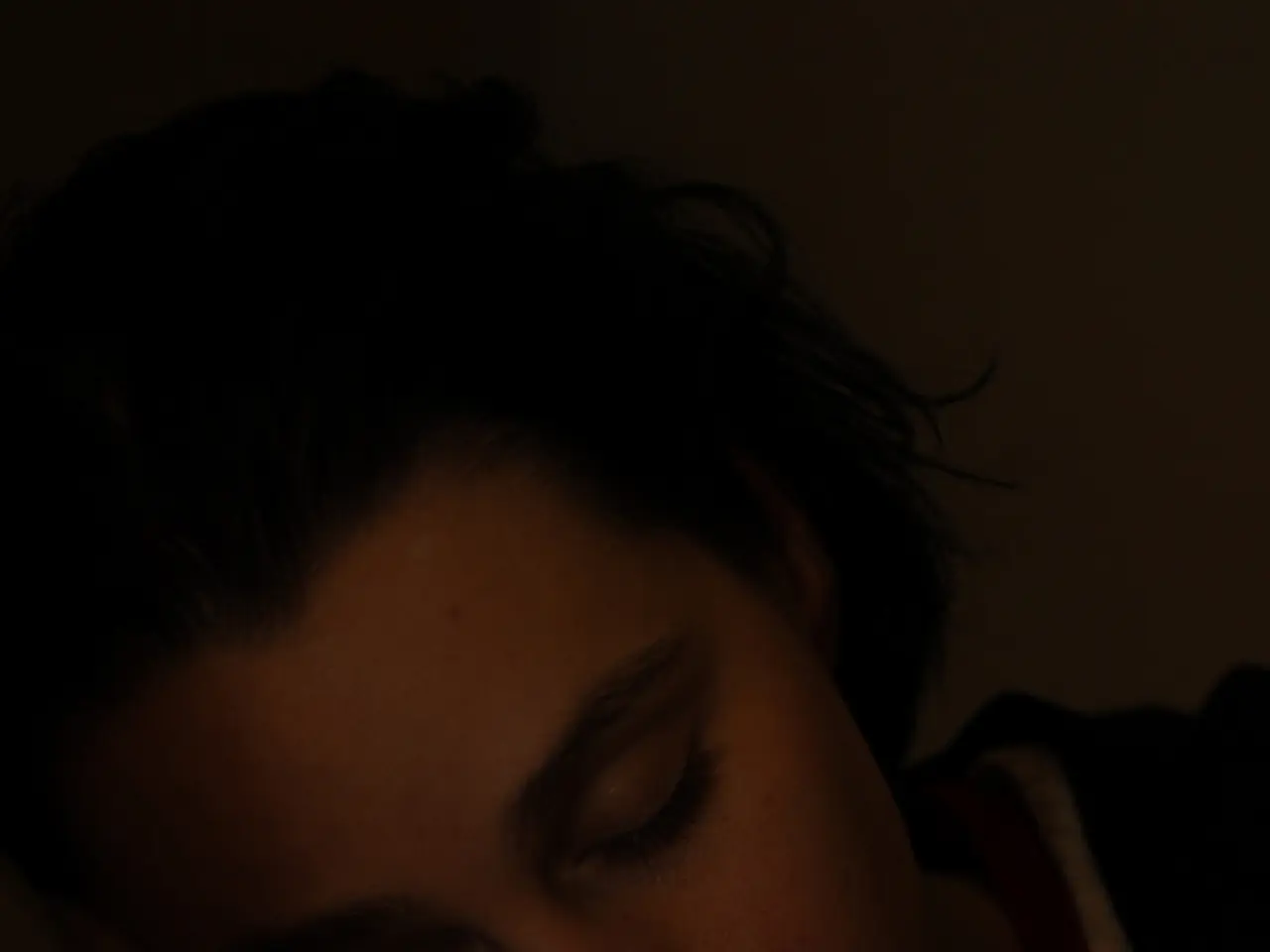Sleep Disorder Conundrum: Origin and Remedies
Paradoxical insomnia, also known as sleep state misperception, is a unique sleep disorder that affects individuals by causing them to significantly underestimate the amount of sleep they actually get[1]. Contrary to popular belief, this condition does not involve sleep apnea or other insomnia disorders, but rather a misperception of sleeping and time spent sleeping.
Symptoms and Warning Signs
The main symptom of paradoxical insomnia is a belief that the person is not getting enough sleep. This belief, despite objective evidence of adequate sleep, can lead to emotional distress, conflicts with others, and misuse of sleeping medication, potentially leading to addiction or side effects[1]. Other symptoms include anxiety, especially at bedtime, conflict with others over sleep, and a subjective experience of insomnia but not feeling tired during the day[1].
A roommate, partner, or family member familiar with the individual's sleep habits may disagree, which can be a warning sign of paradoxical insomnia[1]. Objective measures show that people with paradoxical insomnia are sleeping naturally and do not have other insomnia symptoms such as intense daily fatigue[1].
Potential Causes
Psychological factors such as anxiety, stress, and cognitive hyperarousal (racing thoughts or excessive worry) are common causes, leading to a mismatch between perceived and actual sleep[1][4]. Mental health issues like anxiety and depression, conditions that often co-occur with paradoxical insomnia, can increase sleep fragmentation and arousal through dysregulated hypothalamic-pituitary-adrenal (HPA) axis activity, increasing cortisol at night and disrupting sleep cycles[2][4].
Negative sleep-related beliefs, such as persistent worry about sleep loss or expecting poor sleep, may exacerbate insomnia by creating a self-fulfilling cycle of anxiety and sleep difficulties[4]. Other factors contributing to paradoxical insomnia include stressful life events, personality traits like neuroticism, and hormonal changes[4]. Physiological hyperarousal is considered a core mechanism influencing insomnia in general and may also play a role in paradoxical insomnia[5].
Treatment Approaches
Treatment for paradoxical insomnia typically involves a combination of non-pharmacological and pharmacological approaches. Non-pharmacological treatments include cognitive-behavioral therapy for insomnia (CBT-I), which addresses maladaptive thoughts and behaviors related to sleep[3]. Paradoxical intention, a behavioral technique where the person tries deliberately to stay awake rather than trying to fall asleep, can also be effective[3]. Sleep hygiene and relaxation techniques improve overall sleep quality and reduce arousal before bedtime.
Pharmacological treatments, used primarily in severe cases, include benzodiazepines (e.g., diazepam, lorazepam) and non-benzodiazepine hypnotics (e.g., zolpidem, eszopiclone), which enhance GABAergic inhibition to promote relaxation and sleep onset[1]. These medications are generally recommended for short-term use due to risks of dependence and tolerance[1].
Relationship with Anxiety and Depression
Sleep loss and poor sleep quality from paradoxical insomnia can initiate or worsen anxiety and depression, creating a vicious cycle where mental health issues further disrupt sleep[2][4]. Chronic dysregulation of the HPA axis in anxiety and depression elevates arousal levels and alters cortisol rhythms, which can impair sleep depth and continuity[2]. Treatments that target this underlying stress system dysfunction or reduce anxiety-related hyperarousal are promising strategies for improving insomnia and related mood symptoms[2].
In conclusion, paradoxical insomnia is closely linked to mental health conditions like anxiety and depression, both as a cause and consequence. Effective treatment often requires addressing the psychological components alongside sleep behaviors, incorporating both behavioral interventions and, when necessary, short-term medication under medical supervision[1][2][3][4]. Anyone with chronic insomnia that does not improve with self-care or home treatment should consult a healthcare professional.
- The belief of not getting enough sleep, despite objective evidence of adequate sleep, is a common symptom of paradoxical insomnia, which can lead to mental distress, conflicts with others, and potential misuse of sleeping medication.
- Objective measures reveal that people with paradoxical insomnia are naturally sleeping and do not have other symptoms like intense daily fatigue, whereas their roommates, partners, or family members might disagree, serving as a potential warning sign.
- Mental health issues like anxiety and depression, co-occurring with paradoxical insomnia, can increase sleep fragmentation, arousal, and cortisol levels at night, disrupting sleep cycles and potentially worsening the sleep disorder.




